Ships, like elephants, go to their own separate cemetery to die. They freeze forever on the coast of the Indian Ocean, so that the local poor slowly, like ants, tear them apart into bolts, sheathing and pieces. 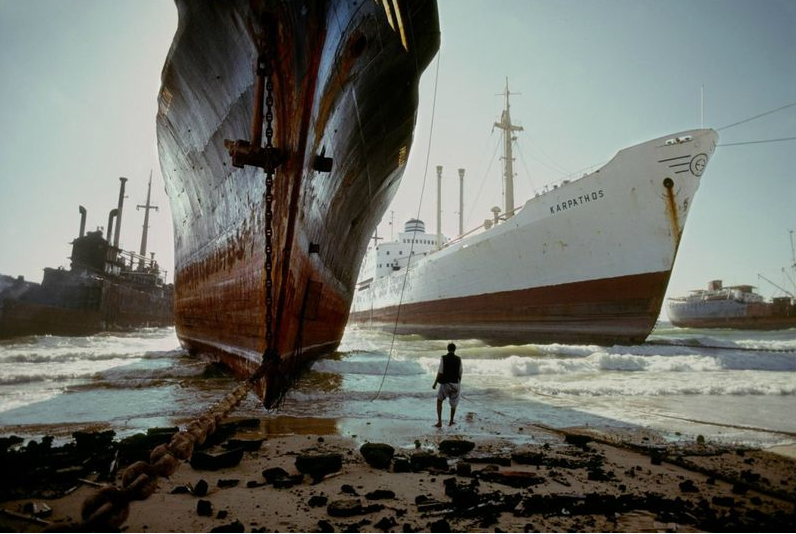
Where else should we put the ships? When a ship turns out to be unusable, almost dying, they buy the last ticket for it. That is, they hire a special captain who will take him straight to the beach near Chittagong in Bangladesh (there are similar cemeteries in India). 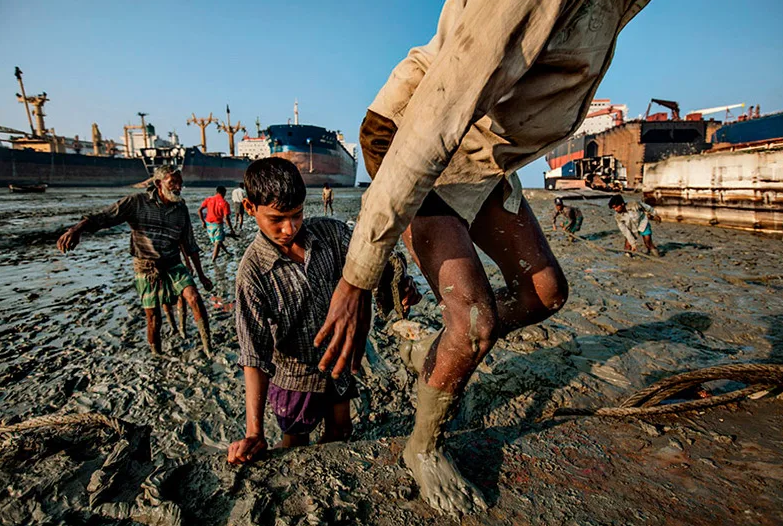
Old men and teenagers are knee-deep in mud pulling out ropes
The captain of the last voyage will run them aground to make it easier for the local poor to break the giant into small pieces.
It looks very epic and overwhelming at the same time. It is impossible for an ordinary person with a sledgehammer or crowbar to quickly dismantle a huge ship. That’s why it looks like ants are taking away bit by bit the carcass of a fallen giant.
How to work as a ship marauder 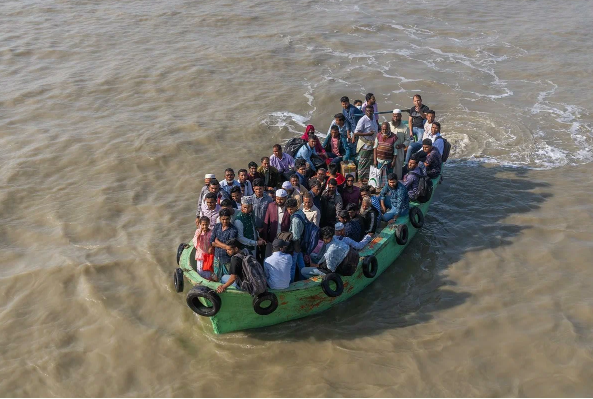
They are sailing for a shift to a distant ship. Faster by water
All cladding is cut into small pieces and transported to trucks to be turned into metal. This is not an official job, why? People from a poor town will rip it off themselves and hand it over to official reception centers. The state has no motive to introduce legal dismantling of ships into parts.
Surely you will also have to ensure security and keep a count of workers? This is spending without additional return. 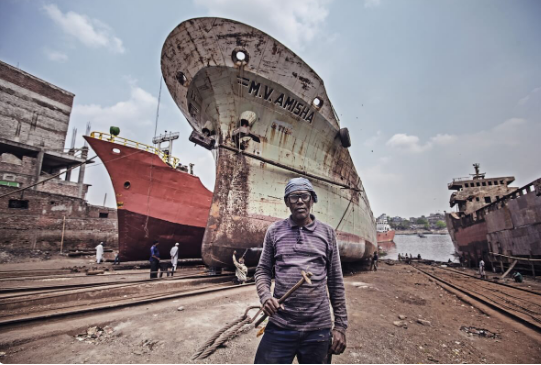
This is his entire tool - an ordinary hammer
Locals have been tearing ships apart grain by grain for generations. They manage to earn from 1 to 4 dollars a day in 12-14 hours.
How did the ship graveyard appear? 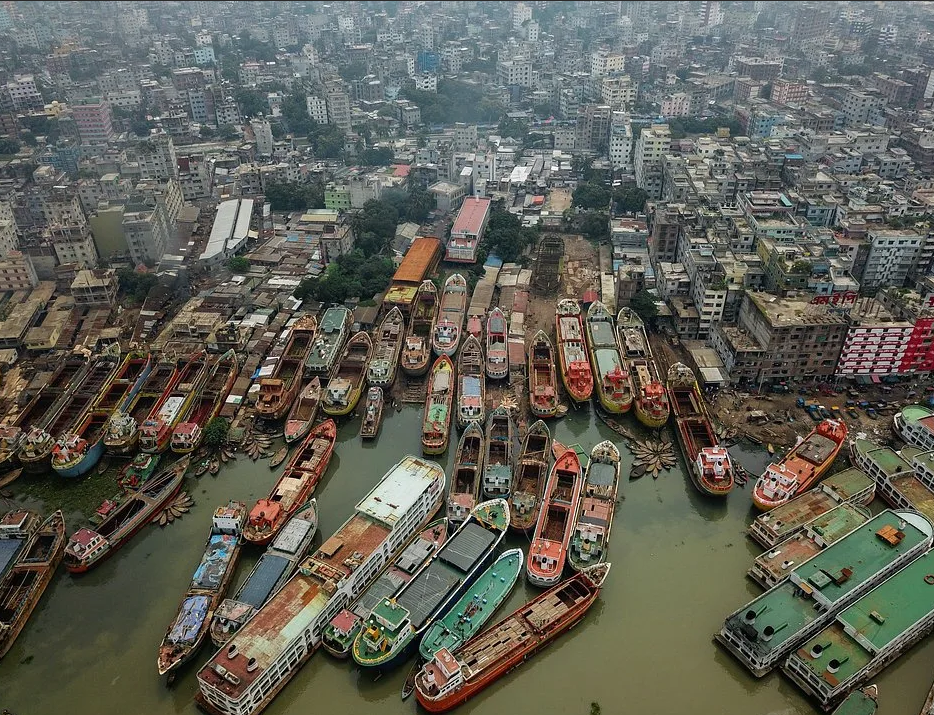
Some ships were almost dragged into the city, and the city grew around some
The first dead ship appeared here in 1960, when the huge Greek ship Alpin ran aground. They could not move it from its place by any force, and soon it rotted, and they abandoned it here (after 5 years).
A local company bought the ship and allowed residents of a nearby town to strip it for scrap. And suddenly it turned out that this was a big profit. A lot of metal is practically free, with a minimum of disassembly costs. 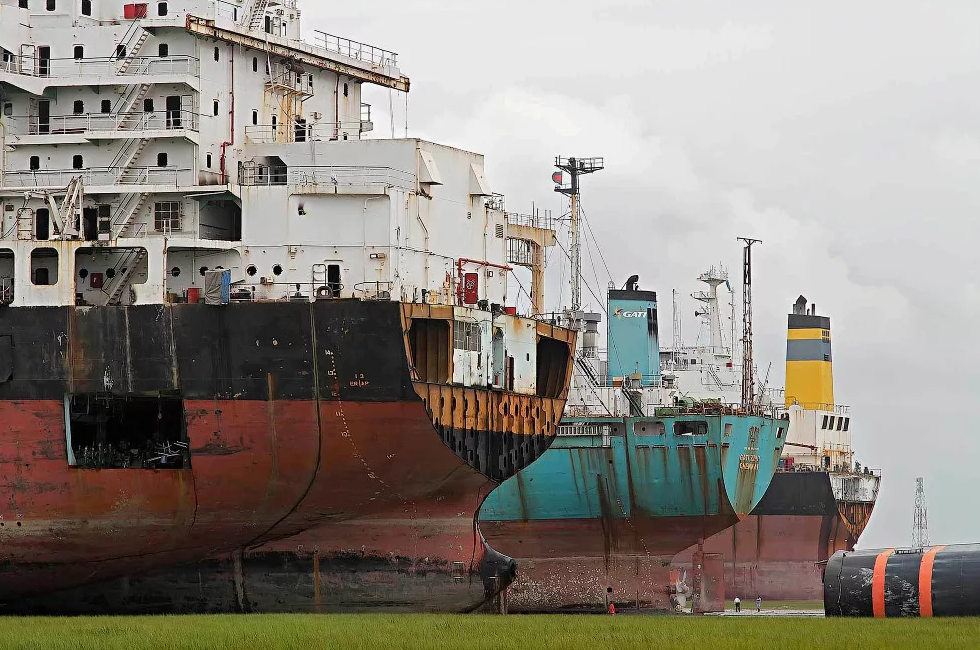
Someone once danced on these decks during a Mediterranean cruise
And then the ship cemetery began to accept other terminally ill ships. They float here in an endless stream. Up to 200 ships can be dismantled per year, depending on the size of the ship.
There's no place for strangers here 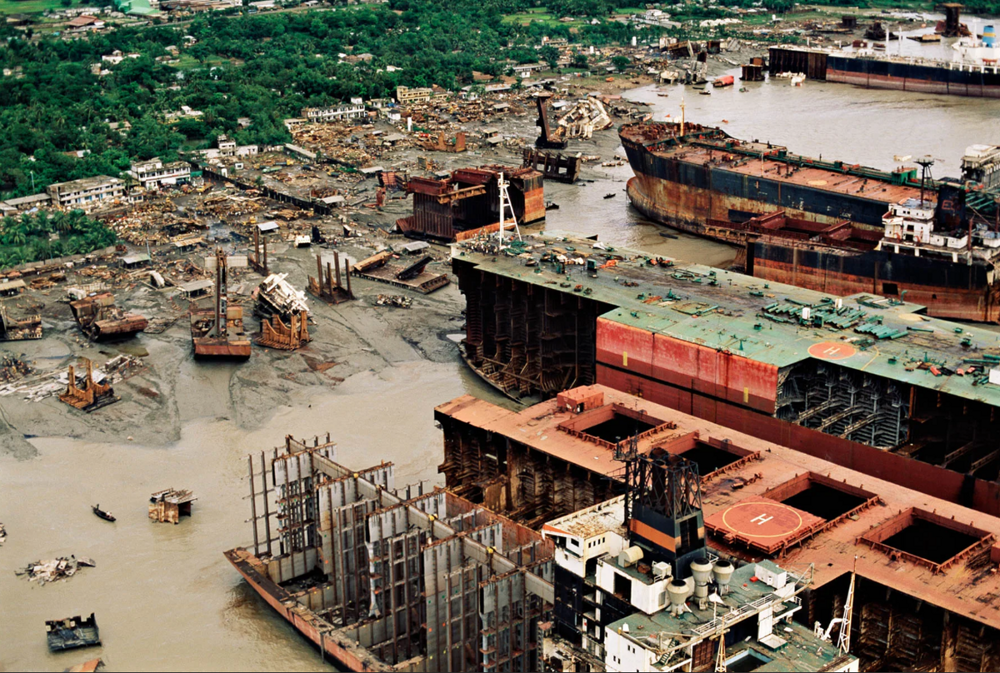
Do you see any shacks in the distance? Compare their sizes and the giant ship
There is little legal here. People work in terrible conditions without tools or protective clothing. Therefore, photographers and tourists are not particularly spared here.
But a special subspecies of industrial tourists always finds a loophole to visit such a grandiose place. 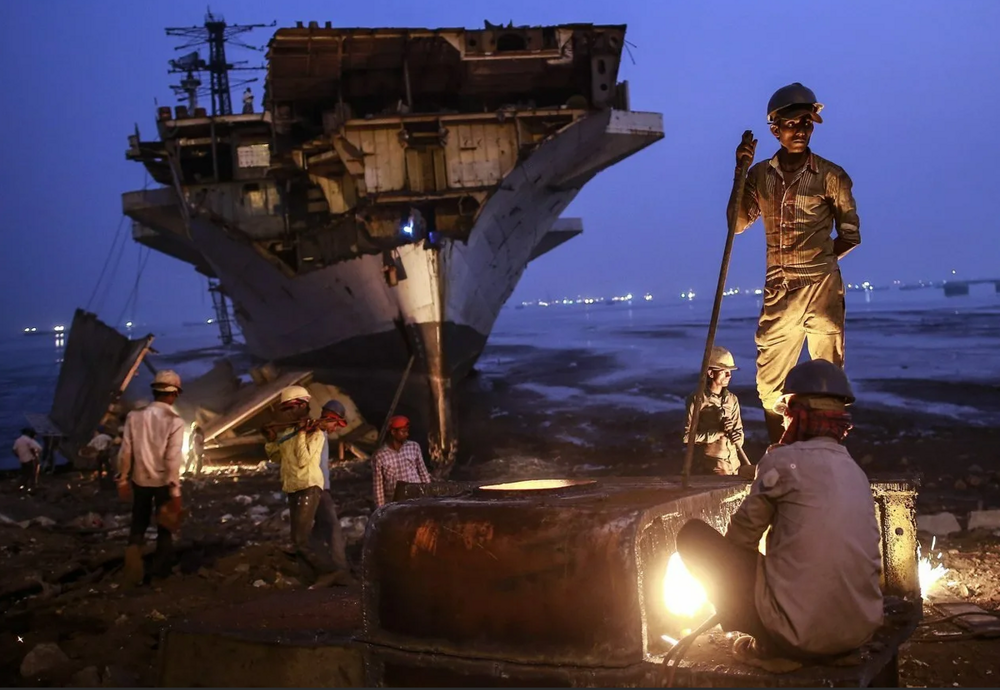
They are trying to melt a piece from a fragment that is too heavy
The city itself near Chittagong also looks very overwhelming - dirty and poor. It completes the picture of the death of civilization, when people are tearing into pieces something huge and great, whose age has already passed.
Places like this have a very overwhelming effect on me. Much more than cute cemeteries in the woods with beautiful tombstones. Because in an ordinary cemetery there is memory, but here there is concentrated dying, even of ships. 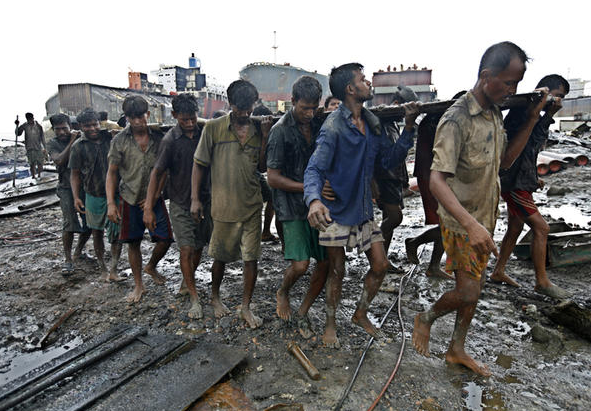
Barge haulers on the Volga 2.0.
Add your comment
You might be interested in:






















